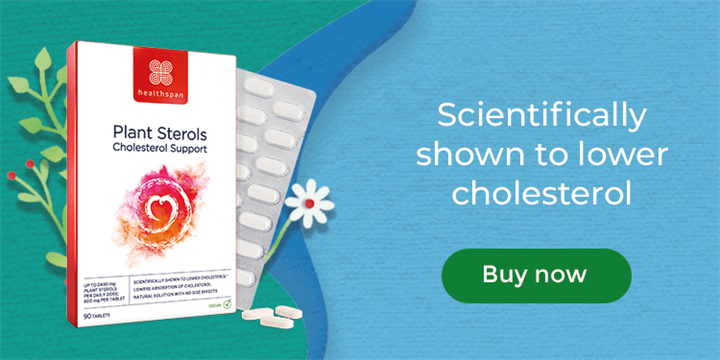Give your mood an extra boost with these quick and easy tips.
1. Be mindful
Rather than turning your mind into a 'blank screen', mindfulness helps you to notice your thinking patterns. The idea is that instead of feeling overwhelmed by racing thoughts, you can begin to step back and look at them in a more conscious way.
One of the great things about mindfulnness is that you can incorporate it into your everyday life and routine. In fact, results of a recent study showed that participants who washed the dishes mindfully for six minutes (for example, paying attention to the smell of the washing-up liquid and the textures and shapes of the dishes) experienced a decrease in stress levels (up to 27 per cent). At the same time, their mental energy increased by 25 per cent.
To get into mindfulness, consider an online mindfulness course like 'Be Mindful Online'1 from the Mental Health Foundation.2 An Oxford University study found it reduced stress and worry by 40 per cent.
2. Treat your gut
We've long known there's a connection between our gut and our emotions (just think about the feeling of 'butterflies' when you're nervous) but now Dutch scientists have the research to prove it.3
After taking a supplement containing Bifidobacterium and lactobacillus for four weeks, participants reported a positive impact on mood and a lower risk of depression.
Another study from Oxford University found that boosting your intake of prebiotics – food for your gut's good bacteria – lowers levels of the stress hormone, cortisol, in the bloodstream. Garlic and onions are natural sources of prebiotics or try a supplement.4
3. Take up the tango!
Get active and you'll soon feel better in mind and body. If sport is not your thing, consider dancing. A 2013 study showed that tango participants showed significant reductions in depression, anxiety, stress, and insomnia.5
If body image is holding you back, new research from Queen's University in Belfast found that people who start to exercise regularly feel better about their bodies within two weeks, so all you need to do is get started.6
4. Eat a Mediterranean diet
It's well-known that following a Mediterranean diet – lots of fresh fruit and vegetables, whole grains, fish and healthy fats such as olive oil and nuts, with moderate amounts of lean meat and dairy products – is good news for heart health, but what's less well-known is that it's just as good for your head.
Not only are people who eat a Mediterranean diet at lower risk of getting dementia, but they are also less prone to depression, according to a study from Spain, which tracked 15,000 people for 10 years.7 Aim for a colourful variety of fresh produce to get the full range of brain-boosting antioxidants.
5. Sort your sleep
Even as spring arrives and we enjoy more daylight hours, if you're not getting enough sleep, you're unlikely to have a spring in your step.
The Health Service Executive (HSE) have a number of tips, including keeping to a routine, relaxing your mind, and avoiding tea, coffee and sugar in the evenings.8
- Sit less. Spend less time on your derrière and you'll feel happier as well as healthier. According to a new study from Australia, the more time you spend on your feet, the lower your risk of anxiety.9
- Listen to happy music. We now have scientific proof that upbeat music can create a lasting improvement in your mood.10
- Smile! Consciously activating your smile muscles lowers the stress response and releases 'happy' chemicals in the brain just as effectively as a spontaneous smile.
- Walk tall. Walking with good posture instantly promotes a positive self-image, say scientists at Ohio State University.11
- Watch cat videos! It's official: watching funny cat videos boosts energy and positive emotions, and decreases anxiety.12






